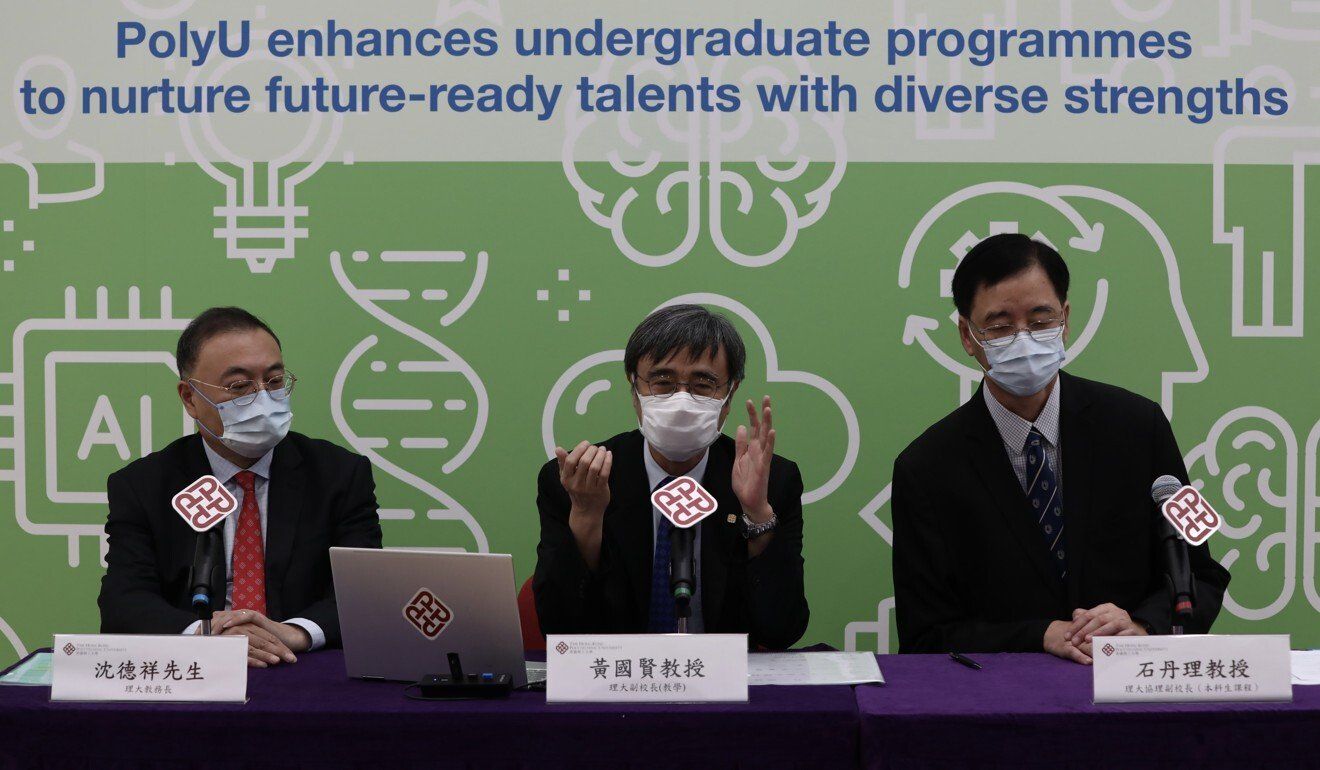Hong Kong News

Hong Kong’s PolyU to teach national security law in course on leadership
First-year students at Hong Kong’s Polytechnic University (PolyU) will learn about the Beijing-imposed national security law and the history of the “humiliation” of China as part of a compulsory course on leadership qualities, according to senior management.
Associate vice-president Professor Daniel Shek Tan-lei said on Monday students needed to be shaped into “law-abiding leaders” and he did not see any “erosion in academic freedom” under the legislation that came into effect in June of last year.
“To be an effective leader, you need to obey the law and follow the regulations,” Shek said.
 Senior PolyU management (from left) Edward Shen, Wong Kwok-yin and Daniel Shek.
Senior PolyU management (from left) Edward Shen, Wong Kwok-yin and Daniel Shek.
Under the law, which bans acts of subversion, secession, terrorism and collusion with foreign forces, the government is required to promote national security in schools and universities.
PolyU, along with Baptist, Lingnan and Education universities, has already announced compulsory requirements for students to learn about national security in the form of seminars, talks or lectures.
The city’s four other publicly funded universities – the University of Hong Kong, Hong Kong University of Science and Technology, Chinese University and City University – have not yet revealed their plans.
Shek said a three-hour lecture on national security and other relevant aspects of China’s constitution and the Basic Law – the city’s mini-constitution – would be taught to first-year students beginning this semester.
The university in Hung Hom, which has about 15,000 undergraduates, was one of several campuses that were severely damaged in intense clashes between protesters and police during the 2019 social unrest.
“Our understanding is that it does not make sense for us just to teach the national security law,” Shek said. “We will cover a bit from modern Chinese history and also the humiliation history of China, and also the history of Hong Kong.”
The lecture would also touch on court cases relating to the security law, including the first one, which involved a 24-year-old sentenced to nine years in prison for terrorism and incitement to commit secession after he rode his motorcycle into several police officers last year while flying a flag calling for Hong Kong’s liberation. Students might also discuss whether the security law has undermined freedoms or if the city’s legislation is “particularly harsh” compared to similar laws in other places globally.
They will have to complete a multiple-choice test and those who fail must retake it.
Student union president Alan Wu Wai-kuen said he believed many students were concerned about the new requirement and noted substantial details about the course had still not been released even though the semester had already started.
“For instance, who will be teaching these courses and how will they be trained? And what if different lecturers have different approaches or interpretations relating to the national security law or relevant court cases?” he said.
Some critics and academics have previously raised concerns over freedoms being eroded on campus under the security law.
PolyU was among at least six universities that have distanced themselves from their student unions by no longer collecting fees from students for their funding. University management last month told its student press to remove hundreds of copies of its magazine that touched on freedoms under the security law.
Shek said he did not see any erosion of academic freedom at PolyU and topics such as Hong Kong independence could still be approached by scholars if the research was done “in an academic manner” and with the “harmful consequences” also discussed.
The university also said they had not seen a “particularly high” number of teaching staff or students leaving as compared to previous years.
PolyU’s senior management also announced plans to become the first local university to introduce an admissions system in the next academic year, in which most students will apply to a department instead of a programme in their first year. They will select their majors the following year.
The university said the new arrangement was aimed at allowing students more time and flexibility to gain a better understanding about their interests before choosing the path they would take.











